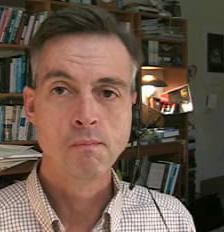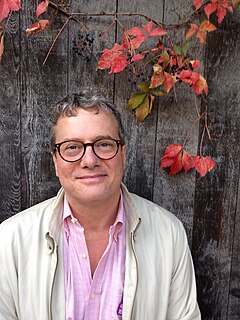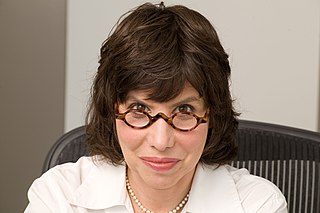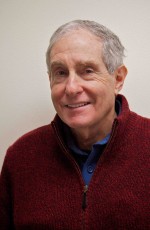
Edward Osborne Wilson was an American biologist, naturalist, and writer. His specialty was myrmecology, the study of ants. According to David Attenborough he was the world's leading expert. He was nicknamed the "ant man".

The New Yorker is an American weekly magazine featuring journalism, commentary, criticism, essays, fiction, satire, cartoons, and poetry. Founded as a weekly in 1925, the magazine is published 47 times annually, with five of these issues covering two-week spans. Although its reviews and events listings often focus on the cultural life of New York City, The New Yorker has a wide audience outside New York and is read internationally. It is well known for its illustrated and often topical covers, its commentaries on popular culture and eccentric American culture, its attention to modern fiction by the inclusion of short stories and literary reviews, its rigorous fact checking and copy editing, its journalism on politics and social issues, and its single-panel cartoons sprinkled throughout each issue.

Thomas Nagel is an American philosopher. He is University Professor of Philosophy and Law, Emeritus, at New York University, where he taught from 1980 to 2016. His main areas of philosophical interest are legal philosophy, political philosophy, and ethics.

David John Chalmers is an Australian philosopher and cognitive scientist specializing in the areas of philosophy of mind and philosophy of language. He is a Professor of Philosophy and Neural Science at New York University, as well as co-director of NYU's Center for Mind, Brain and Consciousness. In 2006, he was elected a Fellow of the Australian Academy of the Humanities. In 2013, he was elected a Fellow of the American Academy of Arts & Sciences.
The New York Review of Books is a semi-monthly magazine with articles on literature, culture, economics, science and current affairs. Published in New York City, it is inspired by the idea that the discussion of important books is an indispensable literary activity. Esquire called it "the premier literary-intellectual magazine in the English language." In 1970 writer Tom Wolfe described it as "the chief theoretical organ of Radical Chic".

James Gleick is an American author and historian of science whose work has chronicled the cultural impact of modern technology. Recognized for his writing about complex subjects through the techniques of narrative nonfiction, he has been called "one of the great science writers of all time". He is part of the inspiration for Jurassic Park character Ian Malcolm.

Robert Wright is an American journalist and author who writes about science, history, politics, and religion. He has written five books: Three Scientists and Their Gods: Looking for Meaning in an Age of Information (1988), The Moral Animal (1994), Nonzero: The Logic of Human Destiny (1999), The Evolution of God (2009), and Why Buddhism is True (2017). As of 2019, Wright is a Visiting Professor of Science and Religion at Union Theological Seminary, New York. He is the co-founder and editor-in-chief of Bloggingheads.tv and the founder and editor-in-chief of Meaningoflife.tv.

Sidney Dillon Ripley II was an American ornithologist and wildlife conservationist. He served as secretary of the Smithsonian Institution for 20 years, from 1964 to 1984, leading the institution through its period of greatest growth and expansion. For his leadership at the Smithsonian, he was awarded the Presidential Medal of Freedom by Ronald Reagan in 1985.

The Blank Slate: The Modern Denial of Human Nature is a best-selling 2002 book by the cognitive psychologist Steven Pinker, in which the author makes a case against tabula rasa models in the social sciences, arguing that human behavior is substantially shaped by evolutionary psychological adaptations. The book was nominated for the 2003 Aventis Prizes and was a finalist for the Pulitzer Prize.

Michael Kevin Pollan is an American author and journalist, who is currently the Knight Professor of Science and Environmental Journalism at the UC Berkeley Graduate School of Journalism.

Timothy Robert Noah, an American journalist and author, is a staff writer at The New Republic. Previously he was labor policy editor for Politico, a contributing writer at MSNBC.com, a senior editor of The New Republic assigned to write the biweekly "TRB From Washington" column, and a senior writer at Slate, where for a decade he wrote the "Chatterbox" column. In April 2012 Noah published a book, The Great Divergence, about income inequality in the United States.
Harold Rosenberg was an American writer, educator, philosopher and art critic. He coined the term Action Painting in 1952 for what was later to be known as abstract expressionism. Rosenberg is best known for his art criticism. From 1967 until his death, he was the art critic of The New Yorker.
Ecolinguistics, or ecological linguistics, emerged in the 1990s as a new paradigm of linguistic research, widening sociolinguistics to take into account not only the social context in which language is embedded, but also the wider ecological context, including other species and the physical environment.
Lee Siegel is an American writer and cultural critic who has written for Harper's, The Nation, The New Republic, The New Yorker, The New York Review of Books, The New York Times, The Wall Street Journal, Slate, and other publications. He is the author of eight books of nonfiction and has received a National Magazine Award.

Virginia Heffernan is an American journalist and cultural critic. Since 2015, she has been a political columnist at the Los Angeles Times and a cultural columnist at Wired. From 2003 to 2011, she worked as a staff writer for The New York Times, first as a television critic, then as a magazine columnist, and then as an opinion writer. She has also worked as a senior editor for Harper's, as a founding editor of Talk, and as a TV critic for Slate. Her 2016 book Magic and Loss: The Internet as Art argued that the Internet is a "massive and collective work of art", one that is a "work in progress", and that the suggested deterioration of attention spans in response to it is a myth.

David J. Linden is an American professor of neuroscience at Johns Hopkins University in Baltimore, Maryland, and the author of The Accidental Mind: How Brain Evolution Has Given Us Love, Memory, Dreams, and God. The book The Accidental Mind is an attempt to explain the human brain to intelligent lay readers, and recently received a silver medal in the category of Science from the Independent Publisher Association. As of July 1, 2008, he has been the Editor-in-Chief of the Journal of Neurophysiology. Linden's second book, The Compass of Pleasure: How Our Brains Make Fatty Foods, Orgasm, Exercise, Marijuana, Generosity, Vodka, Learning, and Gambling Feel So Good, was released on April 14, 2011 (ISBN 978-0670022588).

Alison Gopnik is an American professor of psychology and affiliate professor of philosophy at the University of California, Berkeley. She is known for her work in the areas of cognitive and language development, specializing in the effect of language on thought, the development of a theory of mind, and causal learning. Her writing on psychology and cognitive science has appeared in Science, Scientific American, The Times Literary Supplement, The New York Review of Books, The New York Times, New Scientist, Slate and others. Her body of work also includes four books and over 100 journal articles.

Jonah Richard Lehrer is an American author and blogger. Lehrer studied neuroscience at Columbia University and was a Rhodes Scholar. Thereafter, he built a media career that integrated science and humanities content to address broad aspects of human behaviour. Between 2007 and 2012 Lehrer published three non-fiction books that became best-sellers, and also wrote regularly for The New Yorker and Wired.com.
Thalia Field is an American author known for innovative fiction and interdisciplinary literature. She teaches experimental fiction and interdisciplinary performance at Brown University, where she also serves as Faculty Director of the Brown Arts Institute.

David Ehrenfeld is an American professor of biology at Rutgers University and is the author of over a dozen publications, including The Arrogance of Humanism (1978), Becoming Good Ancestors: How We Balance Nature, Community, and Technology (2009), and Swimming Lessons: Keeping Afloat in the Age of Technology (2002). He is often described as one of the forerunners of twentieth-century conservation biology. Ehrenfeld's work primarily deals with the inter-related topics of biodiversity, conservation, and sustainability. He is also the founding editor of Conservation Biology, a peer-reviewed scientific journal that deals with conserving the biodiversity of Earth, and has written for various magazines and newspapers including The New York Times, the Los Angeles Times, and Harper's Magazine.














